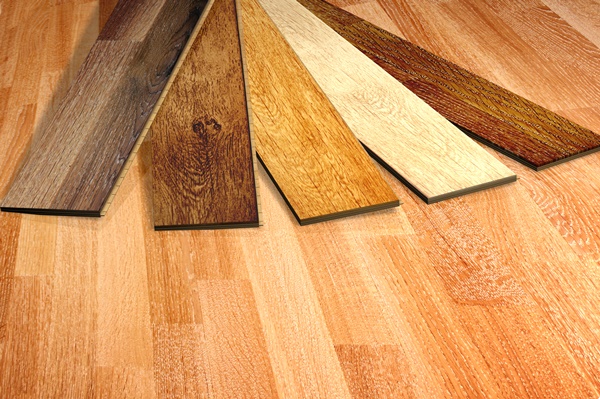Purchasing the Ideal Hardwood Floor
Choosing the right hardwood flooring can be daunting. Because there are so many different types of wood in the world, all with a unique color, texture and feel, the options abound. In effort to help you find the perfect floor, we’d like to offer a few important factors to consider.
Solid or Engineered
The first step is to determine whether you’d like a solid hardwood floor or an engineered slab. If you go with the first option, the name says it all. It’s simply a solid piece of one type of wood. If you choose an engineered floor, you’ll get a piece of veneer on the top glued to a cheaper backing wood on the bottom. If you’re installing floor in a basement or other moisture prone area, it’s best to go with the engineered wood. Also, if you’re installing it directly on a concrete subfloor, the engineered wood is recommended. If you have a plywood subfloor, your options are endless.
A common misconception is that engineered floors are cheaper and less durable. On the contrary, it mostly depends on the thickness of the veneer on the top. A high quality engineered hardwood can be just as durable, and also just as expensive, as solid wood. The most important thing is which type will work best in your specific situation.
Durability and Style
The next things to consider are the hardness of the wood and the appearance of the color, grain, and natural imperfections. Hardness is measured on the Janka scale, which determines how much force is required to bury a BB-sized steel pellet to half its diameter in the wood. The higher the number, the harder the wood, and the more durable the floor will be. For instance, some woods like pine and cedar are on the low end of the spectrum; oak, hickory, and harder maple woods are around the middle; and on the upper end are some high-end varieties of cherry, along with other rare, exotic woods. Make sure to consider what type of use the floor will be getting when examining hardness. If it’s a high traffic area, or a home with pets, you should probably go with a harder wood.
As far as style goes, it really depends on what you like. Different woods have varying grain patterns and colors. Check out a few samples and see what works best to suit the style of your home. Also, some hardwoods will have the knots cut out to make a cleaner finish, whereas others will have the knots left in to give the floor a more rustic feel. We’ll bring some samples to your home to help you find the one that works best with the environment you’re trying to create.
Finish
The most traditional way to finish a hardwood floor is with stain and polyurethane. This gives you the option to choose any color you’d like the wood to be without compromising the grain pattern. The polyurethane layer will add a gloss to the floor, which can provide a very clean finish, but will also be prone to showing imperfections more easily. A more common option today is to rub the wood with oil to finish it. This is a little more expensive, but will also last longer, and is easier to reapply when needed. Also, it won’t show imperfections as easily, because it will provide more of a rustic, matte finish.
Price
There are several factors that influence the cost of hardwood flooring. Is it engineered or solid? A low-grade engineered floor will be a little bit cheaper than most solid woods, but might be slightly less durable. A high-grade engineered floor could cost the same or more than a solid floor, and will have very similar durability. Another factor is the supply and demand. Certain types of wood are in higher demand than others at a given moment. Also, certain woods are more readily available than others. Acacia has recently grown in popularity, and is somewhat difficult to come by, making it fairly expensive. Oak, on the other hand, is very common and a bit cheaper.
In the end, the most important thing is what you like. Hardwood flooring is a long term investment, being one of the most durable types of floor on the market. Therefore, make sure to consider all the options we’ve outlined here, and if you have any questions, give Perfect Flooring a call!








